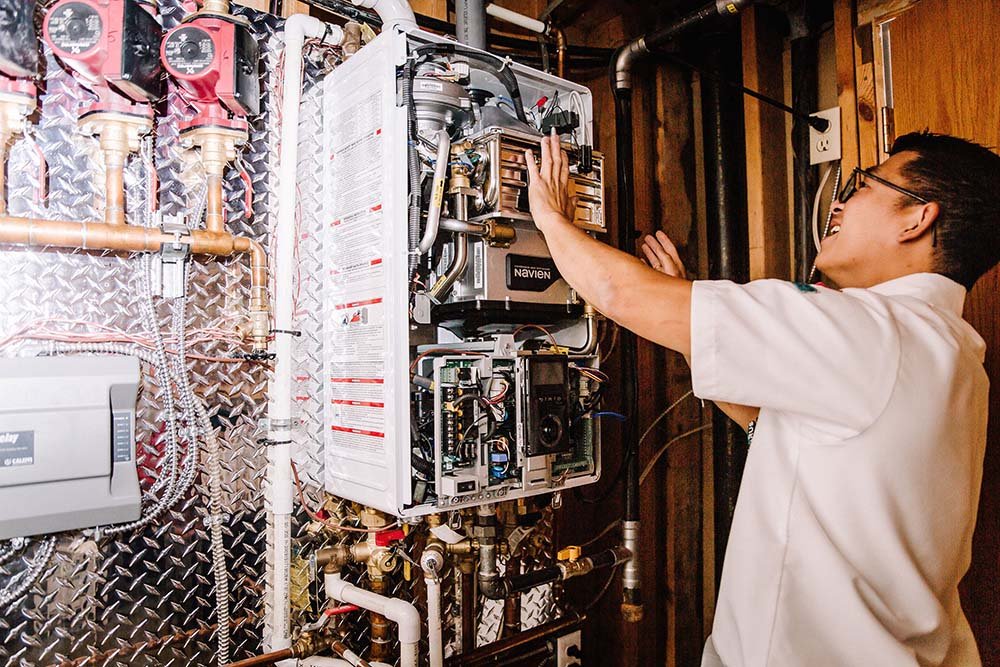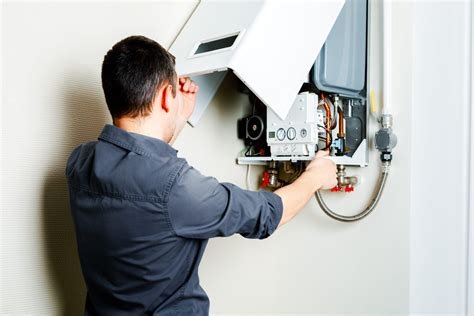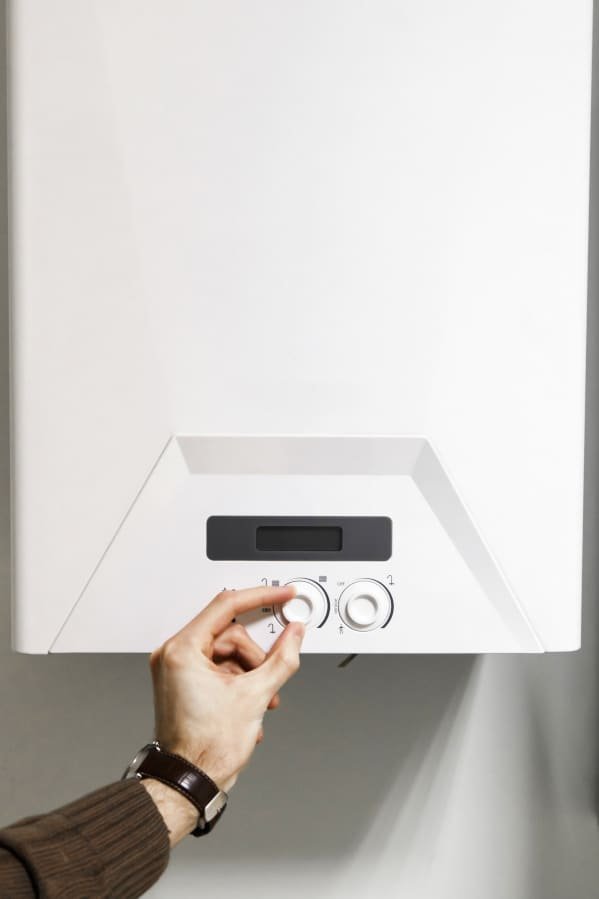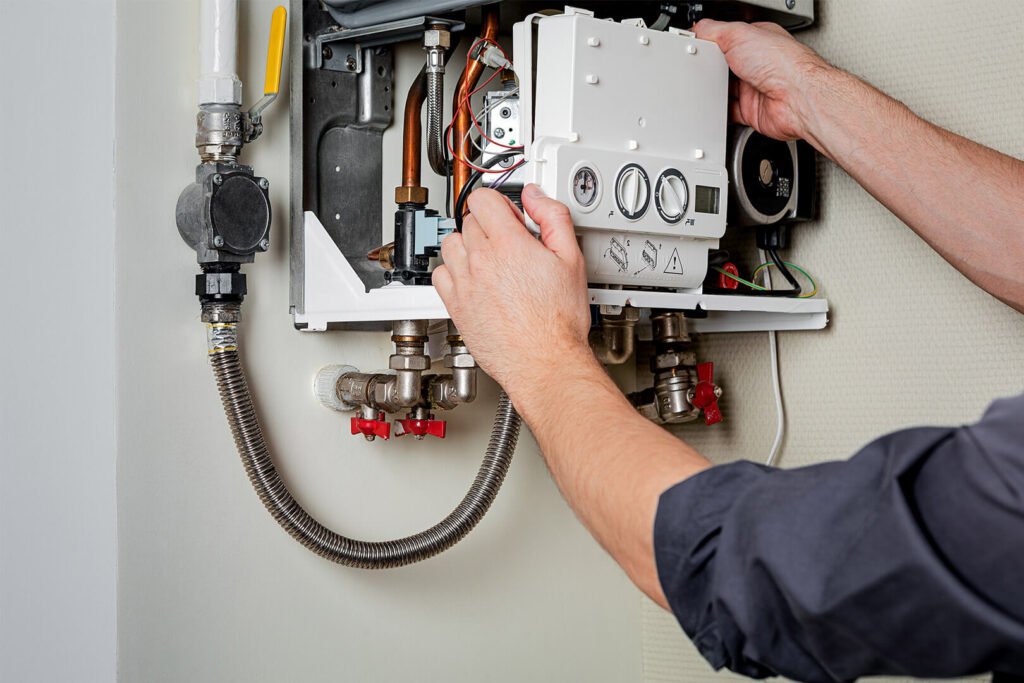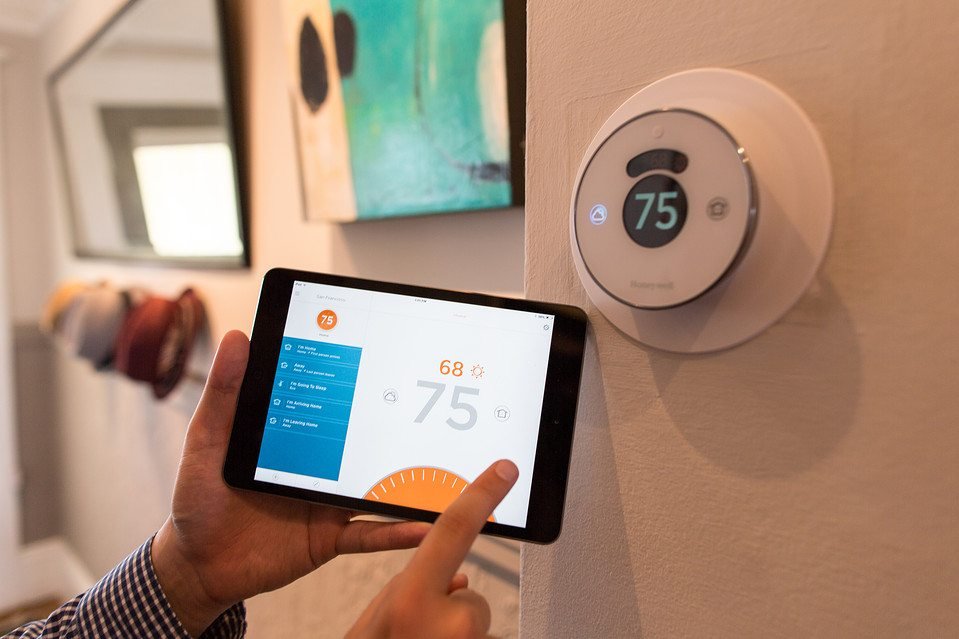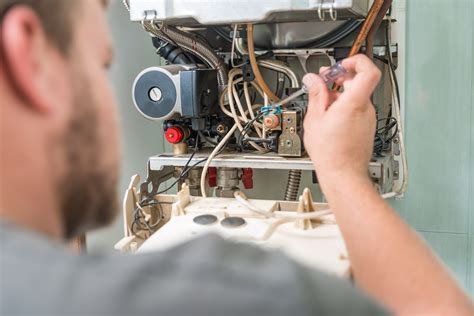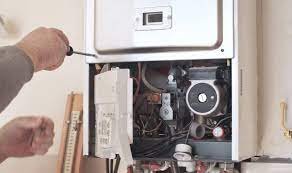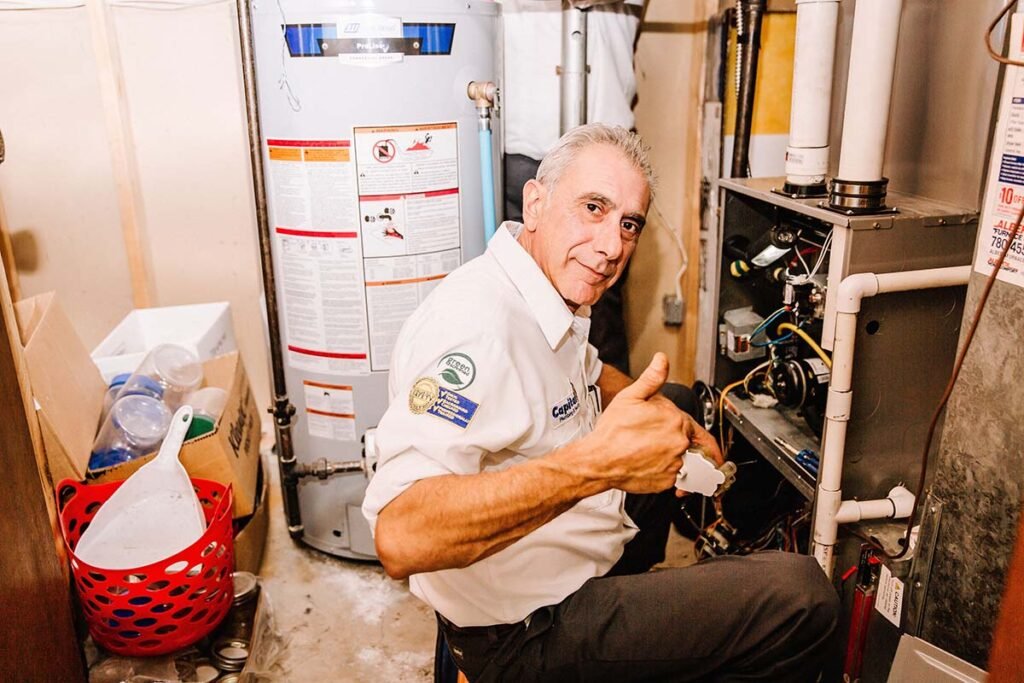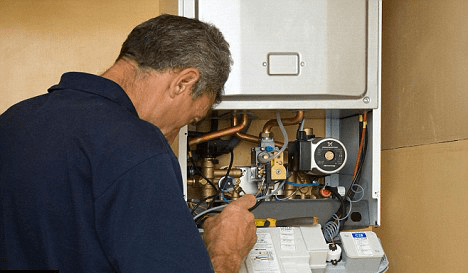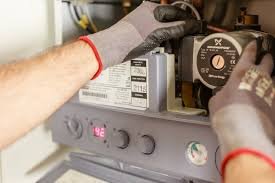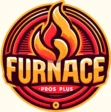Furnace Installation Devon - Your Trusted Heating Professionals
Furnace Pros Plus is your dependable partner for all your heating needs. With years of experience, we focus on providing superior heating solutions to keep your home warm and comfortable. Our group of proficient professionals commit themselves to supplying specialist heater setup, maintenance, and repair services. We comprehend the significance of an effectively operating heating system, especially during the colder months. We focus on efficiency, cost, and consumer fulfillment in every job (huge or little). Whether you need a new heater, a regular check-up, or emergency repairs, rely on Furnace Pros Plus for trustworthy and efficient heating services that ensure peace of mind and convenience.
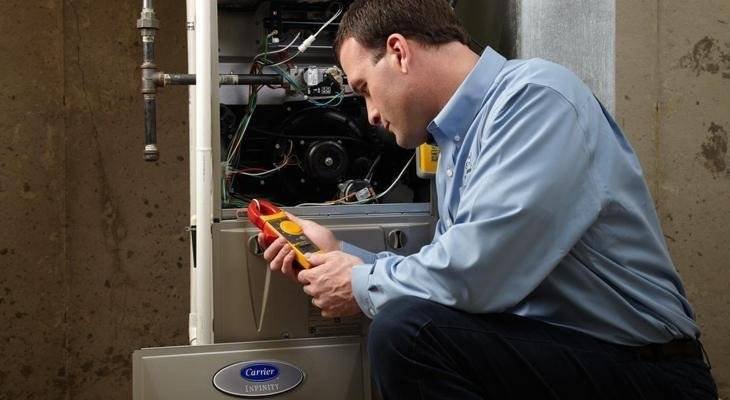
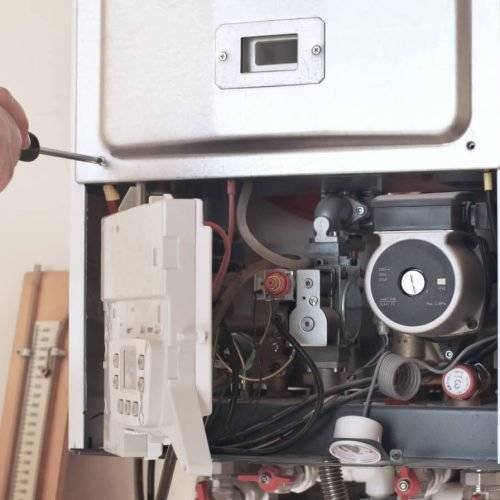
Who Are We?
Residential Furnace Replacements & Repairs
Furnace Pros Plus stands apart as the top heater setup and repair company in Devon, due to its dedication to quality, consumer fulfillment, and competence. This well-established company has built a strong reputation by regularly providing dependable and efficient heater solutions customized to the special requirements of each consumer.
Among the essential elements that set Furnace Pros Plus apart is its group of extremely proficient and qualified professionals. Each specialist brings a wealth of experience and is rigorously trained to handle a vast array of heater systems, from older models to the current innovations. This makes sure that no matter the type or intricacy of the heater, Furnace Pros Plus has the competence to successfully diagnose and fix any concerns.
Furthermore, Furnace Pros Plus puts a high top priority on customer care. The company comprehends that heater problems can be disruptive, particularly during the harsh Devon winters. As a result, they provide timely and dependable service, ensuring that their professionals are readily available 24/7 to attend to any emergency situations. This responsiveness decreases downtime and makes sure that homes and services are kept warm and comfortable without considerable hold-ups.
Furnace Pros Plus also sticks out for its dedication to using only high-quality parts and items. By partnering with leading manufacturers, the company guarantees that every setup, repair, or maintenance job fulfills the highest standards of toughness and efficiency. This not only enhances the durability of the heating systems but also improves their performance and energy efficiency, which can result in considerable cost savings for customers gradually.
The company’s dedication to openness and reasonable prices even more enhances its reputation. Furnace Pros Plus supplies comprehensive, upfront quotes without surprise charges, ensuring that customers comprehend what they are paying for and can make educated choices about their heater needs.
Last But Not Least, Furnace Pros Plus contributes to the local neighborhood by staying ecologically mindful and promoting energy-efficient solutions. By recommending customers on the very best practices and items for lowering energy usage, they help Devon homeowners and services lessen their environmental impact and take pleasure in much better air quality.
All these elements combine to make Furnace Pros Plus the premier option for anybody searching for trustworthy and high-quality heater setup and repair services in Devon, Alberta
How can we help you?
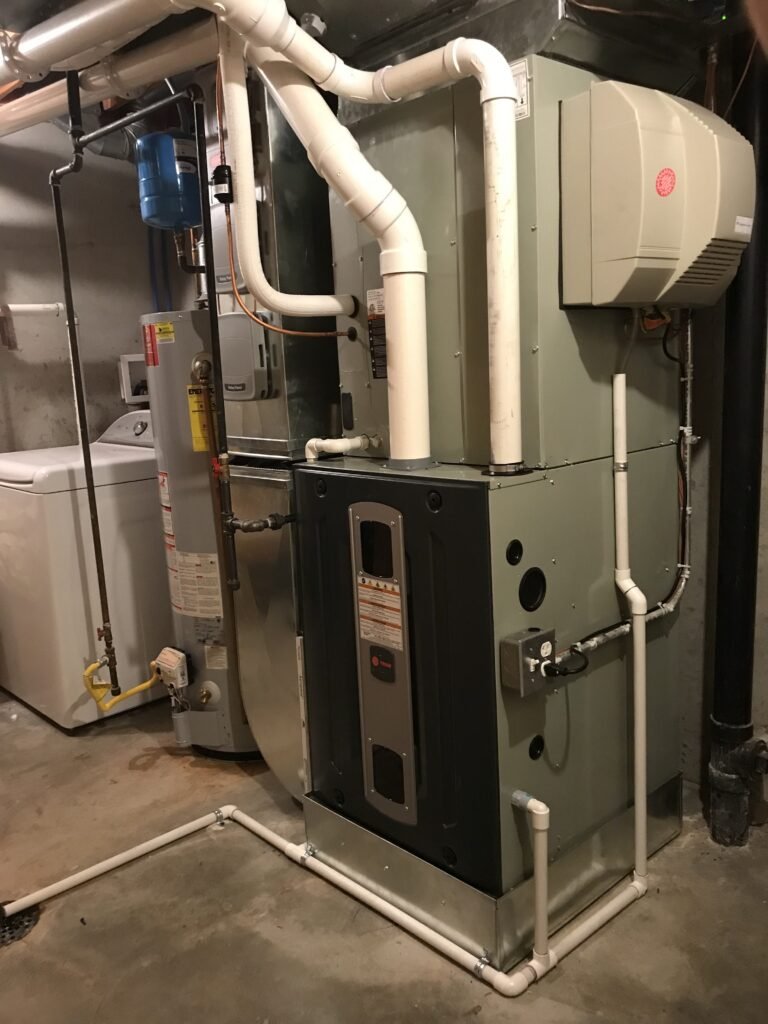
Understanding the Expense of Installing a Modern Furnace
Intro
A functioning heater is important when it comes to keeping a comfy and warm home during the colder months. However, there comes a time when installing a new heater is unavoidable.
Understanding the costs associated with this process is crucial for property owners to plan and spending plan appropriately. This comprehensive guide explores the different elements influencing the cost of installing a new heater.
Factors Influencing Furnace Setup Costs
Kind of Furnace:
- Gas Furnaces: Popular for their efficiency, they typically cost more upfront but provide lower operating costs.
- Electric Furnaces: They are more economical than gas heating systems. However, electric models tend to have greater operational costs due to electricity rates.
- Oil Furnaces: These are less typical and can be more costly due to the cost of oil.
Furnace Size and Capability
- Square Footage: The size of your home directly impacts the capacity required for the heater.
- BTU Ranking: Higher BTU ratings equate to more powerful heating systems, which can increase the cost.
Performance Ratings
Annual Fuel Usage Performance (AFUE):
Higher AFUE ratings imply much better efficiency but also featured a higher cost.
Brand and Quality
Top-tier brands frequently command greater rates due to their reputation for quality and durability.
Installation Complexity
- Existing System: Upgrading from an old system might need extra work and cost.
- Ductwork: The condition and layout of existing ductwork can affect setup intricacy.
- Ease of access: Tough access to the setup site can increase labour costs.
Labour Costs
Labour costs vary by area. In addition, the intricacy of the setup can affect labour costs.
Additional Costs to Think About
- Permits: Some areas need licenses for heater setup.
- Inspections: City bylaws might need post-installation examinations for security compliance.
- Thermostats: Upgrading to a smart thermostat can incur extra costs.
Average Expense of Furnace Replacement
While rates can vary commonly based upon the elements discussed above, here are some typical cost ranges for heater setup:
- Gas Furnaces: $2,000 to $5,000.
- Electric Furnaces: $1,000 to $2,500.
- Oil Furnaces: $2,500 to $6,000.
These are rough price quotes and can vary based upon specific home requirements.
Cost-Saving Tips.
Research and Compare.
Obtain multiple quotes from different contractors to ensure competitive prices.
Seek Rebates and Incentives.
Search for energy efficiency refunds offered by energy companies or government programs.
Think About Long-Term Savings.
Purchasing a more efficient heater can reduce energy expenses gradually.
Conclusion
Setting up a new heater is a significant investment, and comprehending the costs included is important for any homeowner. By thinking about the kind of heater, setup intricacy, labour costs, and extra costs, property owners can much better get ready for this essential upgrade. Keep in mind to seek multiple quotes, explore readily available refunds, and consider long-term energy cost savings when deciding.
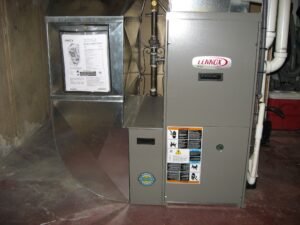
The Right Size Furnace for Your Home: A Comprehensive Overview
Intro
Picking the right size heater for your home is crucial for ensuring efficient heating and convenience during the colder months. A furnace that’s too little will not keep your home warm, while one that’s too big can cause unneeded energy usage and irregular heating. This guide will help you identify the ideal heater size for your home.
Understanding Furnace Sizing: BTU and Performance
We measure the size of a heating system in British Thermal Units (BTU). One BTU is the energy required to raise the temperature of one pound of water by one degree Fahrenheit. When picking a heating system, 2 essential elements play a role: the BTU ranking, showing the heater’s heating capacity, and its efficiency ranking, measured in Annual Fuel Usage Performance (AFUE).
Determining Your Home’s Heating Requirements
You need to compute your home’s heating needs to identify the appropriate heater size. The calculation thinks about elements like square video footage, climate zone, insulation quality, window type, and home layout. Typically, you need roughly 30-60 BTUs per square foot. However, this varies based upon your home’s specific attributes.
Climate Zone and Its Effect On Furnace Size
Your geographic area considerably influences the heater size needed. Houses in colder areas, such as [area], need more BTUs per square foot than those in milder environments. Consult a heating expert for specific recommendations.
The Role of Home Insulation in Furnace Sizing
Great insulation reduces the quantity of heat loss, suggesting you can select a smaller sized heater. Assess your home’s insulation in the walls, attic, and windows. Upgrading insulation can be an affordable way to decrease heating requirements.
Considerations for Various Kinds Of Furnaces
There are different kinds of heating systems, like gas, electric, and oil. Each type has special sizing factors to consider. Gas heating systems are common and efficient, electric heating systems are more simple and more secure but frequently more costly to operate, and contractors install oil heating systems where gas isn’t readily available.
Value of Expert A/c Assessment
An expert heating and cooling assessment is vital. Service technicians consider all variables, including ductwork and home layout, to suggest the optimum heater size. They can carry out a Manual J calculation, the industry standard for determining heating and cooling loads.
Energy Performance and Cost-Effectiveness
Picking a heating system with a high AFUE ranking is crucial for energy efficiency and cost savings. Modern heating systems have AFUE ratings between 80% and 98%, showing the percentage of fuel converted into heating. While high-efficiency heating systems are more costly upfront, they can result in considerable cost savings in the long run.
Dealing With Typical Misconceptions About Furnace Sizing
A common mistaken belief is that a bigger heater is always much better. However, a large heater can result in brief cycling, where the heater frequently switches on and off, lowering efficiency and life-span. Alternatively, a small heater struggles to warm your home sufficiently.
Long-Term Benefits of the Right-Sized Furnace
Choosing the right-sized heater has long-term advantages, including consistent convenience, lower energy expenses, minimized carbon footprint, and fewer maintenance concerns. It’s a balance between upfront costs and long-term cost savings.
Summary: Making an Educated Choice
Picking the right size heater is a choice that impacts your home’s convenience and energy efficiency for years to come. By comprehending the basics of heater sizing and looking for professional guidance, you can make an informed choice that makes sure optimum heating for your home.
Keep in mind, the key to an effective and comfortable home depend on picking the right heater and regular maintenance and thinking about other elements like insulation and climate. With this comprehensive guide, you are fully equipped to pick the perfect heater for your home, supplying heat and convenience for numerous winters.

Replace or Repair Furnace: A Complete Overview
Intro
Deciding whether to change or fix your heater is a significant choice for any homeowner. The option impacts your instant convenience and security and has long-term monetary ramifications. This comprehensive guide will explore different aspects to consider, assisting you make a notified choice.
Understanding Your Furnace
Lifespan and Types
Furnaces typically have a life expectancy of 15-20 years. The two main types are gas and electric, each with different maintenance and operational costs.
Indications of Trouble
Typical signs that your heater might need attention include uncommon sounds, inconsistent heating, and increased energy expenses.
When to Think About Fixing Your Furnace
Repair work is frequently the very best option for minor concerns or heating systems that are fairly new and still under service warranty.
Cost-Effectiveness
Fixing can be more cost-effective for minor concerns. However, frequent repairs might suggest a much deeper issue.
Ecological Impact
Repairs frequently have a lower environmental impact than changing the whole system.
When Replacement is the Best Alternative
You need to consider replacement if your heater is near the end of its life-span, repairs are becoming progressively costly, or if it could be more energy efficient.
Long-lasting Expense Savings
While the initial cost is greater, a new heater can be more energy-efficient, saving you cash on energy expenses.
Technological Developments
Newer models include innovative technology, such as smart thermostats, which provide much better temperature level control and efficiency.
Weighing Your Choices
Expense Analysis
Compare the cost of repairs gradually versus the one-time expense of a new heater.
Energy Performance
Assess how your current heater’s efficiency is impacting your energy expenses.
Home Worth
Consider how a new heater might increase the value of your home, especially if you plan to offer in the future.
Professional Advice
Looking For Expert Viewpoint
Speak with heating and cooling professionals to evaluate the state of your current heater and get price quotes for repair and replacement.
Value of Regular Upkeep
Regular maintenance can extend the life of your heater, whether you decide to fix or change it.
Summary
In conclusion, deciding to fix or change your heater depends upon different elements, including age, condition, cost, and energy efficiency. By thinking about these elements and looking for professional suggestions, you can make a decision that makes sure convenience, security, and monetary vigilance for your home.
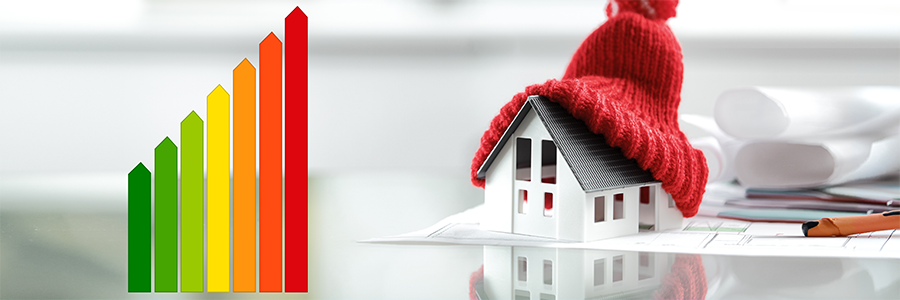
What Season is the Least Expensive to Change Your Furnace?
Will a New Energy-Efficient Furnace Lower Your Residence Insurance?
Intro
Home maintenance can be a significant investment, especially when it involves crucial systems like heating. Among the most substantial costs property owners face is changing their heater. However, timing this replacement can result in considerable cost savings. This article explores the very best time of year to change your heater, thinking about cost-effectiveness and functionality.
Understanding Furnace Replacements
The Requirement for Replacement
Before delving into timing, it’s important to comprehend why and when you need to change your heater. Typical indicators include frequent repairs, heating inefficiency, and the system’s age (usually beyond 15-20 years). Changing an out-of-date or malfunctioning heater improves heating efficiency and makes sure security and convenience during colder months.
Factors Influencing Furnace Costs
A number of elements affect heater rates, including the kind of heater, brand, capacity, and the intricacy of setup. Seasonal demand is another considerable aspect, frequently ignored, yet it plays an essential role in determining the cost.
Best Time for Replacement: Off-Season
Why Select Off-Season?
The off-season, mainly spring and early fall, is generally the most inexpensive to change a heating system. The demand for heating unit is lower during these durations than during the peak cold weather. Lower demand frequently leads to more competitive prices from manufacturers and installers.
Benefits of Off-Season Replacement
- Lower Costs: Minimized demand can result in discounts and more consumer negotiating power.
- Accessibility of Technicians: heating and cooling professionals are less hectic during these times, ensuring more versatile scheduling and quicker setup.
- Sufficient Time for Research: The off-season gives property owners adequate time to research different heater models and options without the pressure of instant requirement.
Planning Ahead
Utilizing the off-season needs preparation. Prepare for the requirement for replacement and schedule it when the demand is low. This foresight saves cash and prevents the inconvenience of a heating system breaking down in the middle of winter season.
Winter season: The Peak Season
Challenges of Winter Replacement
- Higher Costs: The demand for heater setup and repair peaks during winter season, resulting in greater rates.
- Busy Schedules: Discovering a technician might be more tough, and you might need to wait longer for an appointment.
- Emergency situation Replacements: If your heater breaks down in winter season, you might need to select an instant replacement, which leaves little room for cost comparison or settlement.
Other Factors to consider
Energy Performance and Rebates
Purchasing energy-efficient models might be more costly upfront but can result in long-term cost savings. Also, watch out for refunds and tax credits offered for energy-efficient home enhancements.
Value of Regular Upkeep
Regular maintenance can lengthen the life of your heater, postponing the requirement for replacement. It’s a vital aspect of home care that you need to focus on.
Summary
Timing your heater replacement can result in considerable cost savings. The off-season, particularly spring and early fall, is typically the most cost-effective duration for this investment. Planning, thinking about energy efficiency, and keeping your current heater can enhance costs and ensure a warm, comfortable home.
Intro
Property owners frequently ponder whether upgrading their home devices and systems can result in cost savings on their home insurance coverage premiums. One typical concern is whether installing a new heater lowers home insurance coverage costs. This article delves into how a new heater setup might affect your home insurance coverage, using insights into insurance plan, threat management, and possible cost savings.
Understanding Residence Insurance Premiums
Before diving into the specifics of heating systems and insurance coverage, it’s crucial to comprehend what elements affect home insurance coverage premiums. Insurance companies evaluate different elements, including:
- Home Age and Condition: Insurance Agents see more recent homes with updated systems as lower risks.
- Area: Geographical area and local climate can considerably affect insurance coverage rates.
- Security Features: The presence of alarms, smoke detectors, and other security devices can reduce premiums.
The Impact of a New Furnace on Residence Insurance
Setting up a new heater in your home can have a number of ramifications for your home insurance coverage:
- Minimized Threat of Fire and Gas Leakages: Modern heating systems with innovative security features lessen risks like fire or gas leaks. This threat reduction can be favourable in the eyes of insurance coverage suppliers.
- Improved Energy Performance: Newer heating systems are frequently more energy-efficient, resulting in lower energy costs and a decreased environmental footprint, indirectly impacting insurance coverage factors to consider.
- Improved Home Worth: Upgrading to a new heater can increase your home’s market value, which might affect the protection you need.
Potential Insurance Discounts
Some insurance provider provide discounts for home enhancements that decrease threat. These might include:
- Protective Gadget Discounts: You might qualify for a discount if your new heater contains innovative security features.
- Green Residence Discounts: Some insurers provide special discounts for installing energy-efficient home appliances.
Documentation and Appraisal
To leverage a new heater setup for insurance coverage advantages, consider the following:
- Professional Setup: Guarantee a certified professional installs your heater, which can be a requirement for insurance coverage advantages.
- Keep Records: Maintain all receipts and paperwork for the heater purchase and setup.
- Notify Your Insurance Company: Alert your insurance provider about the upgrade. They might need an assessment or extra paperwork.
Factors to consider Before Upgrading
While a new heater can provide advantages, consider the following:
- Expense vs. Benefit Analysis: Examine if the long-term cost savings on insurance coverage and energy expenses validate the initial cost of a new heater.
- Insurance Coverage Evaluation: Talk to your insurance coverage representative to comprehend how a new heater might specifically affect your policy.
Summary
Upgrading to a new heater can reduce your home insurance coverage premiums by lowering threat and boosting your home’s security and efficiency. However, the impact varies based upon individual insurance plan and the specific features of the heater. It’s suggested to consult with your insurance coverage supplier to comprehend the complete advantages and ramifications of a new heater setup.
FAQs
Q: How much can I minimize my home insurance coverage by installing a new heater?
A: Savings vary based upon the insurance coverage supplier and the specific features of the new heater. Speak with your insurance coverage representative for comprehensive details.
Q: Exist any specific kinds of heating systems that are more favourable for insurance coverage discounts?
A: Furnaces with innovative security features, high energy efficiency ratings, and those that fulfill specific environmental standards are frequently more favourable.
How to Prepare for a Furnace Installation
Setting up a new heater in your home is a significant investment and a vital upgrade to your home. It enhances the convenience of your home and improves energy efficiency. Appropriate setup preparation is crucial to ensure the setup process is smooth and hassle-free. This article will guide you through the essential actions to get ready for a heating system setup.
Understanding Your Heating Requirements
Assessing Your Space: The initial step is to evaluate the size of your area and comprehend the heating requirements. A too-large or too-small heater for your home can result in inefficiency and greater energy costs. Consulting with a heating professional to identify the right heater size is vital.
Picking the Right Furnace: There are different heating systems, including gas, electric, and oil. Each has advantages and disadvantages; the option depends upon your area, spending plan, and personal choice. Research and consult with professionals to make a notified choice.
Pre-Installation Preparation
Choosing a Certified Installer: We can not overemphasize the significance of selecting a certified and experienced installer. Search for professionals with great reviews and correct accreditation. They will ensure an appropriate setup and guide you through the process.
Cleaning the Location: Guarantee the location where you plan to install the heater is clear of any clutter. A tidy location supplies easy access to the setup group and speeds up the process. Eliminate any important or delicate products from the area to prevent unexpected damage.
Getting ready for Downtime: Depending on the intricacy of the setup, your heating system might be down for a few hours to a day. Plan appropriately, especially if the setup is during colder months.
Throughout Setup
Access to Your Home: Guarantee the installers have easy access to your home, which includes ensuring that parking is readily available and a clear course to the heater area.
Interaction: Stay readily available to respond to any concerns the installers might have. Clear communication can help fix any concerns rapidly and ensure your setup goes as prepared.
After Installation Checks
Examine the Installation: Once the setup is complete, examine the deal with the installer. Guarantee that the setup is complete and that the location is tidy.
Understanding the System: Have the installer explain the functioning of the new heater, including how to change filters and the fundamental troubleshooting actions.
Guarantee and Documentation: Guarantee you get all essential paperwork, including service warranty details and operating manuals. Keep these files in a safe place for future recommendation.
Conclusion
Getting ready for a heating system setup involves comprehending your heating needs, picking the right heater, and selecting a certified installer. By following these actions, you can ensure a hassle-free setup process and take pleasure in the convenience and efficiency of your new heating system for years to come. Keep in mind, a little preparation goes a long way in ensuring a smooth and successful heater setup.
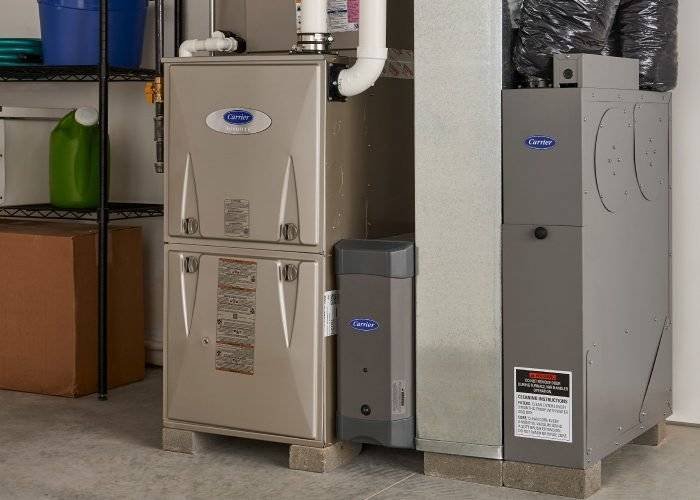
Our Work
